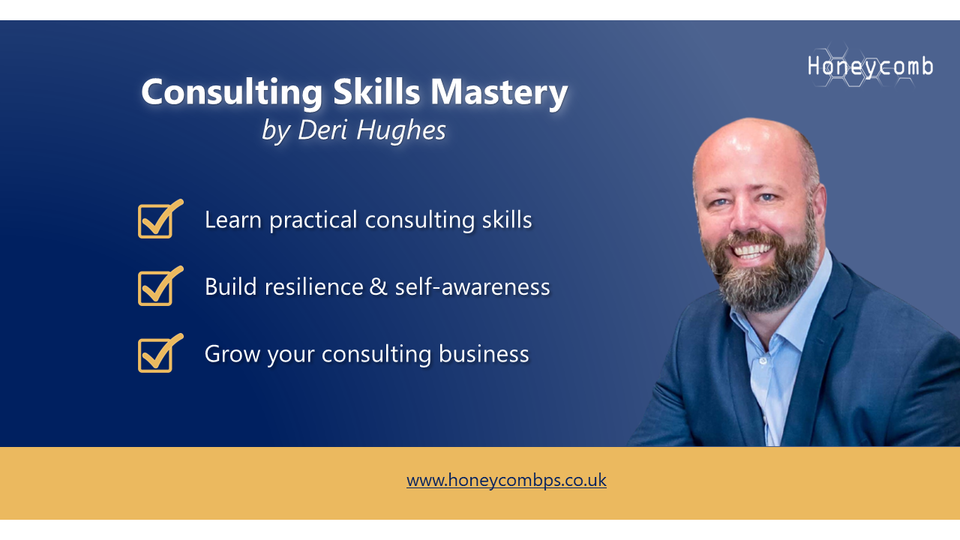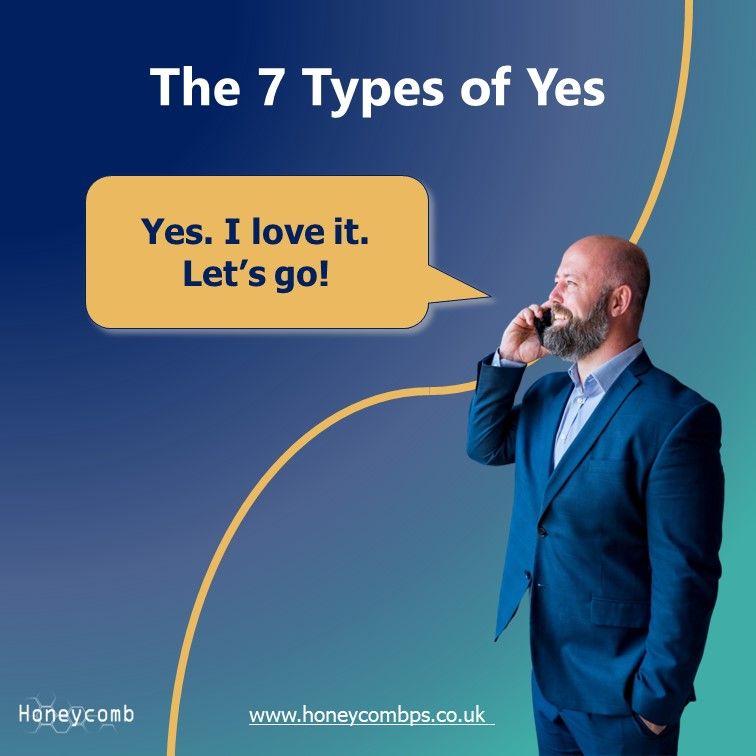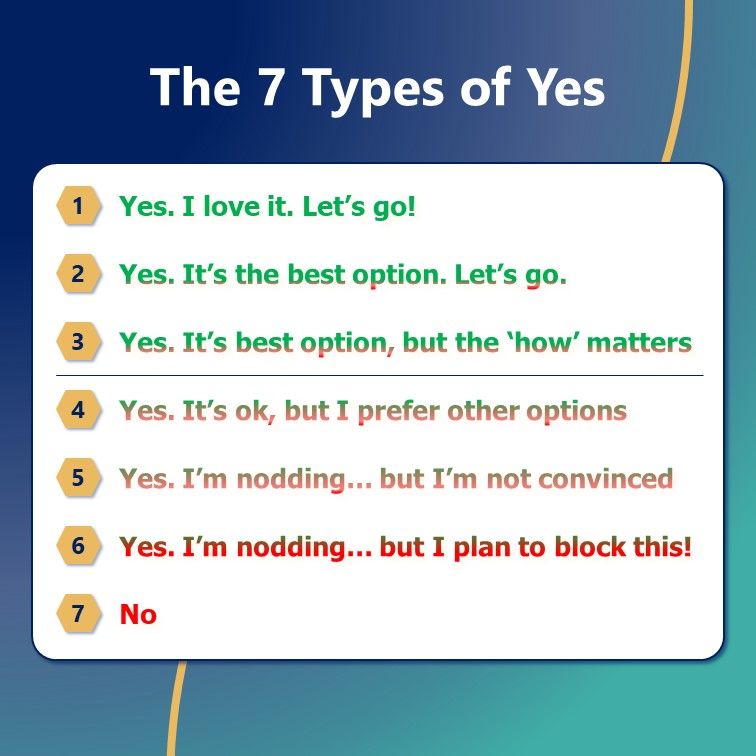🐝 Consulting Skills Mastery Issue 2 - Making Clear Commitments🤝

Welcome to the second edition of Consulting Skills Mastery! This one is all about a foundational aspect of consulting: being clear about what you're committing to doing for your clients.
❔What to expect from me?
My aim with this newsletter is to share my experiences, best practices, and practical guidance for developing consulting skills. I've been a consultant since 2005 and have worked in & with many different firms - from 6 years at Bain & Company, through to advising lots of high-growth boutiques.
These days I specialise in helping consulting firms manage & develop their people in ways that accelerate development & fast-track growth.
I'm also building a new kind of advisory & training business. Calm by design, decentralised and transparent. I'll share some of that journey too.
In this edition
1. Self-aware Consultant: Integrity & Accountability
2. Problem Solver: Defining the Right Question
3. Trusted Advisor: Demonstrating Reliability
4. Communicator: 7 Types of Yes
5. The week in consulting

Integrity & Accountability
Why is it so important for consultants to make clear commitments?
There are lots of reasons but, for me, top of the list is being able to look myself in the eye and know that I've done what I said I will do. Making a clear commitment is the starting point to being in integrity.
In 2018 I was advising a boutique consulting firm owner about his recruitment processes. He was a challenging client for several reasons.
We had set up a piece of work to solve a specific problem - in this case clarifying the decision rights & process steps around their recruitment processes. I'd get going as agreed, working with his team to design improvements to the candidate experience.
Our first update to the owner was challenging. He'd forgotten what we'd agreed and decided we should be working on something else entirely - without telling us. A particularly odious example of the classic 'scope creep' that is the enduring fear of many a consultant!
He didn't hold back his anger. By the end of his rant he'd loudly criticised everyone in the room, just for doing what we'd agreed.
All my life I've found criticism challenging. When I'm off guard, being criticised can make me feel anger and get defensive. Fortunately, these days, I've done the work and that rarely happens now.
A big part of my approach to staying in control is centred in the concept of Integrity:
It is frequently important in a consulting project to check-in on what you've said you'll do. What was agreed? Are you doing that?
When this particular client was ranting at us I was able to sit there calmly, without anger. I was able to do that because I knew that we'd done what we said we would do.
I was in integrity.
As a result, the criticism washed over me and I was able to re-build trust.
But what about the times when I'm out of integrity? That certainly happens, and it can be damaging.
There are two things that need fixing when you're out of integrity.
- Your relationship with your client (or whoever you made a commitment to)
- Your relationship with yourself
The latter is foundational. Being out of integrity is an unpleasant place to be. Often feelings of guilt, shame or fear crop up. That nagging sense that you haven't done the thing you said you would do.
I have a simple process to get back into integrity and fix my relationship with myself. It's called taking Accountability*.
The Accountability Process consists of asking myself 6 questions:
- What was the commitment I made and who to?
- Did I keep the commitment?
- If no, what did I make more important instead?
- What was the impact on me, and on anyone else?
- What was the unconscious belief or shadow driving my behaviour?
- What can I do differently to be the person I want to be?
Question 3 is the key to this. Whenever we fail to keep a commitment it's always because we made something else more important. The challenge is that we don't always do that consciously.
To get the big lessons from this process you need to try to get beyond the practical to the emotions underneath it.
Instead of "I had too much to do" maybe the truth is "I was scared that if I asked for help I would be judged negatively".
And then, if you can, dig deeper to the messy stuff that hides in your shadows. To shine a light on those unconscious beliefs that drive our behaviours.
"Why am I scared of negative judgement? Who criticised me in the past?"
That's where the gold really is.
* This process is adapted from a version used by The Mankind Project
Want more on this? I recommend the book The 15 Commitments of Conscious Leadership by Jim Dethmer, Diana Chapman, and Kaley Warner Klemp

Defining the Right Question
A big part of making clear commitments as a consultant is getting alignment on the question you're addressing.
What are you actually trying to answer through the work you're doing?
Note: This mostly applies to consultants at the 'strategy' stage of a project, figuring out what needs to be done. But it is still important for implementation or change consultants - you will come across many problems to solve, and defining the right question each time will make your life easier
There is a tried and tested method for figuring out the right question: Situation, Complication, Question (often shortened to SCQ).
- Situation: The established context for the work you are doing. Well known, not controversial. Ensures everyone is on the same page.
- Complication: The thing that your client wants to respond to. Opportunity or threat. The reason they've brought you in.
- Question: What should we do? Once answered, will bring clarity on how your client can best respond to the complication.
Let's look at some examples to bring this to life.
A boutique consulting firm had experienced strong recent growth and was approaching 30 people. The team were asking for greater clarity on what the firm needed them to do in order to progress and get promoted. My client was concerned that without that clarity some of their top performers would start looking elsewhere.
They came to me with a question: "What can we learn from the way other consulting firms manage their talent?"
A useful question to think about, but it was quite narrow and didn't really get to the heart of the problem they were trying to solve. To make it focused & relevant we refined it using the SCQ framework:
- Situation: You are a boutique consulting firm experiencing strong growth. Your team are asking for increased clarity so they can develop & get promoted.
- Complication: You have a clear growth strategy based on a distinctive client proposition. You need specific skills in your team to deliver it, and need your team to develop them as fast as they are able.
- Question: What is the optimal talent development model to achieve your growth strategy, provide clarity to your team, and support retention?
Here's another example.
I was working with a major global consumer products manufacturer. Specifically with their Oral Care division - think toothpaste, toothbrushes, and a bit of mouthwash.
Fascinating industry, especially when you look globally. Did you know that some countries, like the UK, associate fresh breath with cold, minty, flavours whilst others, like Nigeria, go for hot spicy flavours? Or that many Brazilians brush their teeth 5 times a day?
Anyway, back to the strategic problem. When we first engaged with them their strategy was to develop & capture the 'white space' in the global toothpaste market - by going into markets such as Iran and Afghanistan where many people weren't yet using toothpaste.
The thinking was to educate and encourage people to switch from sticks to toothbrushes, and ideally buy our toothbrushes & toothpaste.
Here's how we changed the question and showed them a different route was necessary:
- Situation: You are the global #3 toothpaste manufacturer, operating in a highly profitable category with good growth potential. You have a presence in a mix of developed & developing world markets.
- Complication: You have a stated ambition to reach global #2. This cannot be done by capturing 'white space' - you must find a way to win in the major growth markets of India, Brazil and China.
- Question: What will it take to grow market share in India, Brazil & China and get to global #2?
Reframing the question like that completely changed the game for them. We ran workshops on how to reach rural shoppers in India. Gamed out what competitors might do in Brazil. Developed a detailed brand plan for the heritage Chinese toothpaste brand they owned.
With a new plan in hand they could motivate their teams, by drawing a clear connection from what their ambition to the things they needed to do.
As a consultant you can add a ton of value on day one by getting clear on the Situation & Complication they are facing - and therefore what Question they really need to answer.
As the two examples here show, that question will often come back to what they are trying to do. Their grand vision, ambition or growth strategy. So easy to lose sight of that in day-to-day working life - but you can help them get back to it.
With clarity on the right question, you can both commit to an approach that is going to get the most valuable answer for your client.
Want more on this? The classic book is The Pyramid Principle by Barbara Minto.

Demonstrating Reliability
In the first edition of the Consulting Skills Mastery newsletter I introduced Maister's Trust Equation. A foundational concept for consultants who want their clients to trust them (that's you... right?!)
The Trust Equation states that Trust is a function of Credibility, Reliability, Emotional Intimacy, and low Self-Orientation.
Let's focus on Reliability for a moment. Clients experience you as reliable when you are dependable and predictable. Can they trust you to behave consistently?
Anyone can demonstrate reliability - it takes no special knowledge or expertise. It doesn't require you to take a risk by being vulnerable. So it's a great place to start, particularly if you're early in your consulting career.
If you are in Integrity ("I do what I say I will do. My actions match my words") then there's a good chance clients will perceive you as reliable, and trust you more.
Here's 15 ways you can demonstrate reliability at different stages of a consulting engagement:
Project start-up & first meetings
- Provide your availability promptly when asked
- Offer to send notes after a call, and send them same-day
- Draft an email for your client to send to their team explaining the project
- Be able to clearly articulate the project context & target outcomes
- Increase frequency of interactions (familiarity builds confidence in how you behave)
Mid-project
- Don't rearrange, postpone or miss meetings
- Hit your deadlines
- Get to know your clients' preferences (in all areas)
- Send meeting materials in advance
- State next steps after every meeting - commit to them, and deliver them
Project close & post-project
- Explicitly confirm that you have delivered what you said you would
- Consolidate all key docs in one place and send your client a link
- Draft an email for them to send to their boss summarising the successes
- Seek their feedback, and then act on it
- Stay in touch with news or resources you know will interest them
What would you add to this list?

The 7 Types of Yes
On the topic of clear commitments, let's talk about getting to the ultimate goal of many consulting engagements: A client's decision.
You've defined a clear, relevant question. Done the work to develop your recommendation. Told a powerful, compelling story in the final workshop.
The decision-maker is ready to make their decision. To commit themselves and their colleagues to action.
To make that decision they need four things:
- Access to relevant information & expertise (you've given them this, well done!)
- An appropriate framework (hopefully this was part of your compelling story)
- The right environment (if they are ready then you got this right)
- Confidence (wait... will their colleagues support them?!)

Unfortunately, too often those colleagues will nod and say "Yes, that's the right option" whilst sitting there less than 100% committed. Whether that's group think, confirmation bias, or just a desire to move on to the next topic.
One of the most powerful tools I learned in my time at Bain was also one of the simplest: The 7 Types of Yes
I've used it many times since then and it always resonates with clients (and usually gets some knowing laughs too!)
The 7 Types of Yes helps people feel safe expressing how strongly they really support something. It gets beyond the nodding heads to a more honest response about what someone is really thinking.

When we're closing in on a decision during a client working session I'll often ask around the room - what number Yes are you? When you get a flood of 1s and 2s, you're in good shape
But people often feel comfortable saying that they are actually a Yes 3 or 4. It makes it safe for them to express the reservations that they have.
More often than not, that sets up the most useful discussion of the day.
Remember, good decision-making is defined by the quality of the decision, but also the speed, effort and yield of those decisions. If you don't uncover the Yes 4s, 5s, 6s or 7s your yield - the return you get from that decision - will be lower than expected.
And you'll be left scratching your head, saying "but everyone agreed it was the right thing to do!"

Best new thinking this week
A beautiful Richard Feynman quote, shared on LinkedIn by BCG Managing Director Konstantinos Apostolatos. Shows the energy & innovation that can be released by framing questions effectively.
Joby Newton sharing his thoughts on the skills consultants need beyond their technical knowledge
Harvard Business Review on using simulations as a method to upskill employees (something we're looking into as part of Honeycomb's training courses)

Podcast: Deb Zahn's Craft of Consulting podcast is a great listen. In this episode she speaks to data scientist Zack Pike as he reflects on his first year as a consultant

Thanks for reading! When you're ready there are three ways I can help you:
1. Consulting Skills training courses (9.2/10 average from 300+ ratings)
2. Our Consulting Skill Accelerator toolkit - get in touch to learn more
3. My free 'Train the Trainer' practical workshop (limited to 12 people each time)
If you'd like to discuss training needs for your consulting team then feel free to book a no obligation call with me here, I'd love to help
I write things like this to help consultants. Subscribe below to get the new stuff straight to your inbox.


